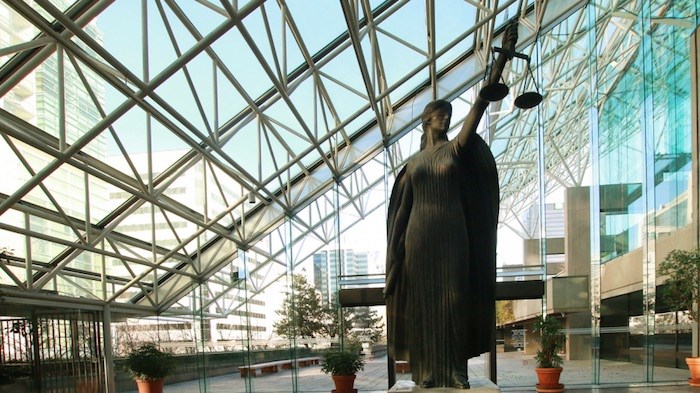B.C. Supreme Court has overturned a B.C. Human Rights Tribunal decision awarding $150,000 to an Indigenous mother whose children were taken away.
In his Jan. 22 decision, Justice Geoffrey Gomery said the Vancouver Aboriginal Child and Family Service Society (VACFSS) was deprived of a fair opportunity to address issues upon which the tribunal award decision relied.
So, he sent it back to the tribunal for reconsideration.
It was in November 2022 that tribunal member Devyn Cousineau found "RR" was discriminated against when she was separated from her children by the society for three years, and awarded the payment. It was the second highest award ever, lawyers have said.
Cousineau’s decision said the society apprehended RR’s four children in August 2016, retained custody of them and strictly controlled her access to them.
The children were taken to different foster homes outside Vancouver but were eventually returned to RR’s care after a provincial court mediation.
Then came Cousineau’s decision after a lengthy hearing.
Cousineau said the deck was stacked against Indigenous mothers.
“I conclude that the discrimination in this case is the effect of a wider web of laws, policies, and practices which interact to create a system stacked against Indigenous families, especially single mothers living in poverty, with disabilities, and with children with disabilities. In other words, RR’s complaint illuminates systemic discrimination.”
However, the society appealed, saying the tribunal decision was undermined by errors of law including errors of jurisdiction as well as procedural unfairness.
Gomery said no one disputes the case is an important one.
“It raises questions concerning the respective roles of the provincial court and the Human Rights Tribunal in addressing the removal of children from Indigenous parents,” he said. “Indigenous children and parents are over-represented in the child protection system. This is a consequence of laws and policies enacted over many years by Canadian governments.”
Still, he said, the society was not afforded a fair opportunity to address issues in evidence and legal debate before the tribunal.
“RR may yet be entitled to a remedy based on a correct legal analysis,” Gomery said.
RR told the tribunal VACFSS based its decisions about her ability to parent on stereotypes about Indigenous single mothers and assumptions about her mental health and addictions.
RR was raised by her mother and stepfather, both multigenerational survivors of residential school. Her first interaction with the child welfare system came when she was apprehended at five years old.
The Afro-Indigenous woman claimed that instead of supporting her and accommodating her needs, the society separated and disconnected her from her children. In her human rights complaint, RR alleged VACFSS’s conduct was discrimination based on her race, ancestry, colour and mental disability, in violation of B.C.’s Human Rights Code.
Cousineau found the society did not have reasonable grounds to continue keeping RR’s children in its custody and that none of the discriminatory conduct could be justified as reasonably necessary to protect RR’s children.
She noted, though, that the society was created for the very purpose of fighting for children in the face of colonial oppression, the first such organization in Canada.
“Its roots in Vancouver’s urban Indigenous community, and significant efforts to mitigate or eliminate the discriminatory impacts of child welfare, are important and recognized,” Cousineau said. “At the same time, it remains bound to apply provincial child welfare legislation.”


